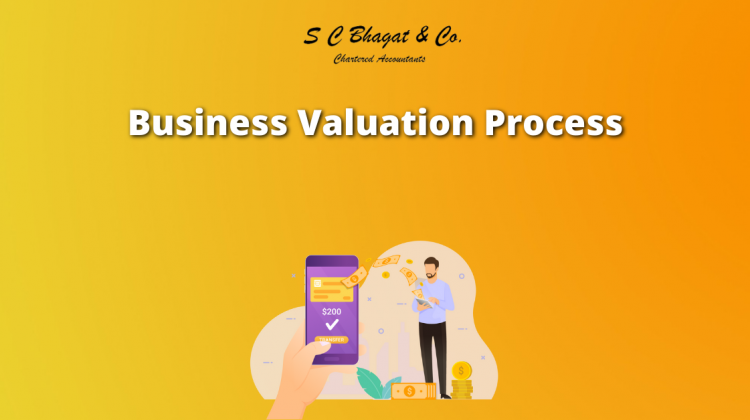In this post, we’ll go through the business valuation process, the many methods for valuing a startup, and why having competent specialists when appraising a firm is critical.
The process of determining a company’s value is known as business valuation. It is an analytical technique for determining the value of a firm, property, or asset if it were to be sold. Although there are many various types of enterprises and assets that might be valued, there are two main approaches:
1) Methodology of Discounted Cash Flow (DCF)
2) The CMA Methodology (Comparative Market Analysis).
The information in this post will help you better understand company valuation approaches and how to evaluate your firm.
It’s not easy to assess a company’s worth. It necessitates familiarity with the industry, market, and process. At virtual auditor, we assist and support in Startup Valuation and Business Valuation.
The following information will assist you in:
- Who is qualified to conduct a valuation?
- What exactly is the procedure?
- How do you determine a company’s worth?
- When should you use valuation tools and how should you use them?
- Registered Valuer’s Legal Opinion on Share Valuation
Introduction
Following a directive issued by the Ministry of Corporate Affairs on October 18, 2017[1], the Companies (Registered Valuers and Valuation) Rules, 2017 (“Registered Valuer Rules”) were introduced, requiring any company issuing securities under the provisions of the Companies Act, 2013[2] to obtain a valuation report from a Registered Valuer who is registered within the terms laid out under the Registered Valuer Rules and the Companies Act.
Licensed Appraiser
Membership in a recognised valuers’ association and registration as a valuer with the Insolvency and Bankruptcy Board of India are among the qualifications and experience required to become a registered valuer. The Registered Valuer Rules, including Rules 5 and 6[3], define out the qualifications for becoming a registered valuer in great detail, including academic requirements, experience requirements, and the registration process itself. The valuers are also required to not do any asset valuations for three years before being appointed or for three years after they are appointeda valuer if they have any direct or indirect stake in those assets.
A Registered Valuer’s Responsibilities and Obligations
A registered valuer is required to accomplish the following tasks under Section 247(2) of the Companies Act[4]. First and foremost, they must appraise assets in a fair, accurate, and unbiased manner. Registered valuers must exercise prudence when performing their obligations as valuers. They must also estimate in accordance with any regulations that may have been established, and they cannot participate in the evaluation of any assets in which they have a financial interest, whether direct or indirect, at any stage during or after the valuation process.
A registered valuer must also undertake valuations in compliance with the Valuation Standards that the Central Government announces as necessary, according to Section 247(2)(c) of the Companies Act[5]. A valuer must make values in accordance with (a) a globally recognised valuation methodology; (b) valuation standards approved by any professional valuation organisation; or (c) valuation standards defined by the Reserve Bank of India, Securities and Exchange Board of India, or any other statutory regulatory authority until the Central Government announces the Valuation Standards.
As a result, all appraisals required by the Companies Act must now be carried out in accordance with the Rules, according to a system such as:
- a method of valuing that has achieved significant acceptability all throughout the world.
- valuation recommendations of any valuation professional organisation;
- or valuation rules specified by the Reserve Bank of India, Securities and Exchange Board of India, or other statutory regulatory organisations.
- The Central Government can announce how assets and businesses must be valued under the Companies Act via Rule 16(1) of the Registered Valuers Rules[6], which allows the Central Government to announce how assets and corporations must be valued under the Companies Act.
Registered Valuers are responsible for assets that fall under their jurisdiction.
Registered valuers can perform land and building valuations, plant and equipment appraisals, and securities and financial asset valuations.
They can register to value all three types of assets, but they can only value the assets for which they hold a registration
The Most Effective Method for Valuing a Startup
There is no optimum strategy for valuing a startup in theory. However, there are a variety of approaches for determining the value of a startup. The following are the most prevalent methods:
- Method of Comparative Sales Analysis
- Methodology for Comparative Company Analysis
- Method of Discounted Earnings
- Method of Market Approach
- Methodology for calculating income
- Method of Valuation for Convertible Securities

